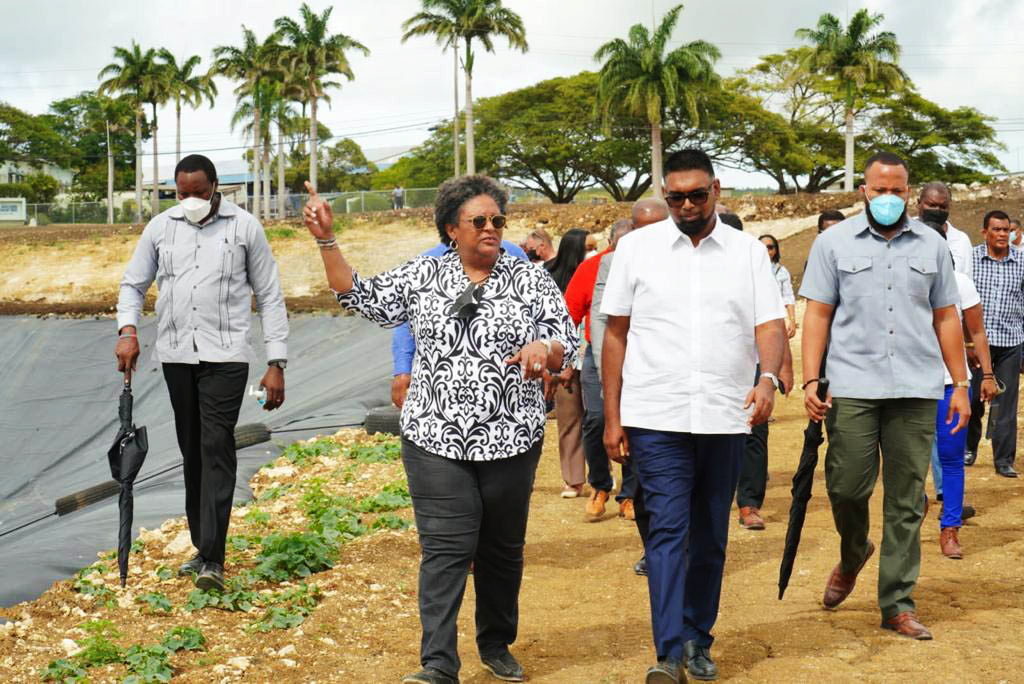Towards the end of June the Caribbean was made aware that its food security condition had realized something of an improvement, albeit a marginal one, compared with what we had been told back in August last year. Then, news was that many of the region’s smaller islands, particularly, were afflicted with a condition that had been described as ‘food insecurity’. The news had been contained in an assessment titled “Food Security and Livelihoods Survey” which had declared that since August last, the situation had improved somewhat, the survey revealing that 3.7 million people, or 52 percent of the population of the English-speaking Caribbean, remained food insecure, a 10 percent improvement in the condition that had obtained back in August last year.
Whatever the seemingly more favourable numbers reflected in the more recent survey, the news would have, in all likelihood, made little difference to the mood in the region since, substantively, the actual ‘numbers’ would still have appeared decidedly alarming. And why not? After all, hadn’t Caribbean people, over time, come to have being mostly spared the ‘burden’ associated with the application of actual numbers to their security condition? It seemed, however, that some countries in the region were taking a hint. Guyana, Barbados and Trinidad and Tobago sought to make the high profile promotion of food security a priority over the past three years. Widely publicized food security-related events were held in these countries whilst the media in the region remained preoccupied with the unfolding creation of the Food Security Terminal in Barbados.
As the conflict in the Ukraine further intensified, the earlier food security warnings in the region, not having altogether disappeared, the Caribbean is suddenly beginning to pay increasing attention to its own food security bona fides. One can argue that the disclosure by the Caribbean Community that, going forward, the region would be targeting a 25% reduction in imported foods was triggered mostly by the earlier announced food insecurity condition as a whole, though once the disclosure was made the question arose as to whether many of the smaller territories with a higher dependence of imported foods, mostly to cater for their tourism industries, could bear the strain of such a deep gouge in their food imports.
One issue that appears to have been generally averted in the regional food security discourse has to do with the extent that the more agriculturally robust countries in the region (Guyana, Jamaica and Trinidad and Tobago are among the ‘front runners here) still appear to have not yet been effectively deployed across the region alongside institutions like the World Food Programme and CARDI to help strengthen the food production of the more food-dependent countries in the region. Since there may well be acceptable but as yet unstated responses, questions should be asked as to whether the enhancing of the food security bona fides of the weaker territories in the region cannot be responded to through a sustained/long term CARICOM undertaking to design and implement initiatives to enhance the food security credentials of the vulnerable countries in the region.
Here, and given what we know about the agricultural capabilities of some CARICOM member countries, the question arises as to whether a CARICOM-driven initiative to ‘borrow’ skills from these countries to support the enhancement of the proficiency of the weaker territories is probably worth considering. One reason why, as a region, we cannot allow the specter of food insecurity to ‘put down roots’ in the region (if it has not already done so in some instances) has to do with the health-related challenges that are linked to protracted undernourishment and the challenge that this is bound to pose to the weaker health service facilities in the region. If only for this reason there is a need for a greater sense of collective regional urgency to plan and implement a much more expeditious and multi-faceted food security agenda for the Caribbean.






